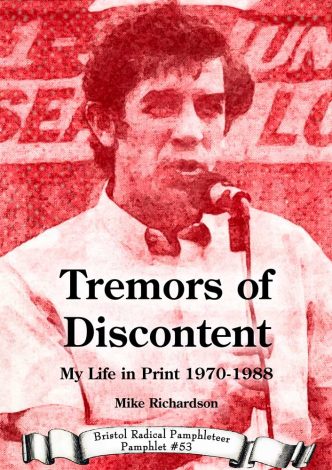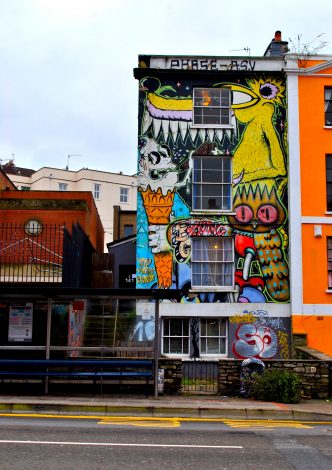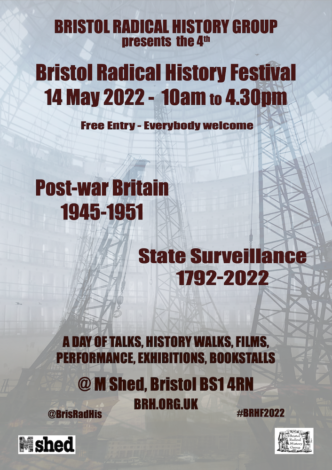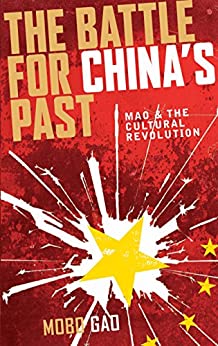While there are many academic studies of workers’ resistance and consciousness during the 1970s and 1980s, few accounts relate the personal-political experiences of the activists involved. Tremors of Discontent, however, explores how Mike Richardson’s individual consciousness came to change during that period. It shows how gradually his participation in trade union and left politics broke through his boyhood reserve, intensified by the external political, economic and social circumstances. By […]
So much of what we love about Bristol was made possible by squatting. Bristolians have taken over buildings and public spaces for housing, protest, art, gigs, raves, libraries, food and laughter from Leigh Woods to Easton. We’ve squatted in the aftermath of the Second World War, during the Miners’ Strike and in response to 21st Century austerity. But the memory of squatted spaces is all too easily lost to eviction and criminalisation. This project seeks to map when, where and why we and […]
 Not A BRHG Event
Not A BRHG Event
Stephen E. Hunt of Bristol Radical History Group will be presenting an online tour, based on the Bristol Radical History Group publication Angela Carter's Provincial Bohemia': The Counterculture in 1960s and 1970s Bristol and Bath. This event is part of Being Human 2020, the national festival of the humanities. Angela Carter was one of the late 20th century’s most acclaimed novelists and came of age as a writer in 1960s Clifton, where she experienced life in post-war Bristol, looking at a […]
 On Brandon Hill
On Brandon Hill
This is an absolutely epic overview of Bristol culture – literary connections, film, music, gossip and much more since WW2. That’s around seven decades’ worth. You need to read it on an electronic device for two reasons: first, it’s an e-book; second, you will find yourself checking search engines, wikis, and music sites on every other page. In the words of the author, Nick Gilbert: "On Brandon Hill is the first ever comprehensive history of post-war Bristolian culture, and covers all the major […]
 Memories of 1960s Bristol
Memories of 1960s Bristol
I came to Bristol from Newport in South Wales in August 1962 when I was 12 years old. I had been brought up there and my family came from the Pontypool area. I had once been to Bristol Zoo on a school trip and spent a family holiday in a small caravan at Portishead, both times coming by trail under the Severn. I had also been on a school day trip by steamer from Cardiff Docks to Weston-super-mare when I was about 10. My family moved to Bristol because he had become a Methodist minister, getting […]
Roger Ball will outline how during the Second World War the government introduced compulsory ID cards as part of their emergency measures. It was not until seven years after the War that ID cards were finally withdrawn. Clarence Willcock, a Liberal activist, was instrumental in this process; his refusal to show his ID card when stopped by the police in North London in 1950 raised questions about their use in peacetime Britain, led to a campaign and contributed to the withdrawal of the cards in […]
This 2008 book is a significant contribution to an ongoing process whereby Chinese radicals are reappraising dominant narratives on revolutionary China and in particular on the ‘Cultural Revolution’ (CR) period of 1966-76, thereby challenging the official Chinese Communist Party (CCP) dismissive verdict over Mao’s later policies and the so-called ‘Gang of Four’. While most of us on ‘The Left’ in the West know a fair bit about the 1917 Russian Revolution for example, our knowledge of China’s […]
During the summer of 1946, thousands of British families took the law into their own hands to temporarily solve their housing problems by "requisitioning" empty military camps. This mass-squatting movement was rapid, spontaneous and entirely working-class in character. While it was often driven at ground level by women, the movement soon developed a formal leadership structure dominated by ex-servicemen who had served as NCOs and warrant officers. Bristol, with particularly acute housing […]
Black Power in Britain started in 1967, reached its apogee in 1971 and was in terminal decline by the mid-1970s. It was an expression of frustration, anger and – most importantly – resistance to the individual, institutional and state racism experienced by the postwar generation of black immigrants to Britain. The British state took the threat of Black Power very seriously, both at home and across the Commonwealth. When an international conference on Black Power took place in British […]
Steve Hunt of Bristol Radical History Group will lead a stroll around some old haunts associated with Angela Carter and the 1960s and 1970s counterculture. Join Steve to reimagine the area around Hotwells and Clifton when it was a hotbed of what Angela Carter called "Provincial Bohemia." Angela Carter is widely appreciated as one of the most creative and engaging English writers of the late Twentieth Century, being author of such bestsellers as The Bloody Chamber, Nights at the Circus and […]




